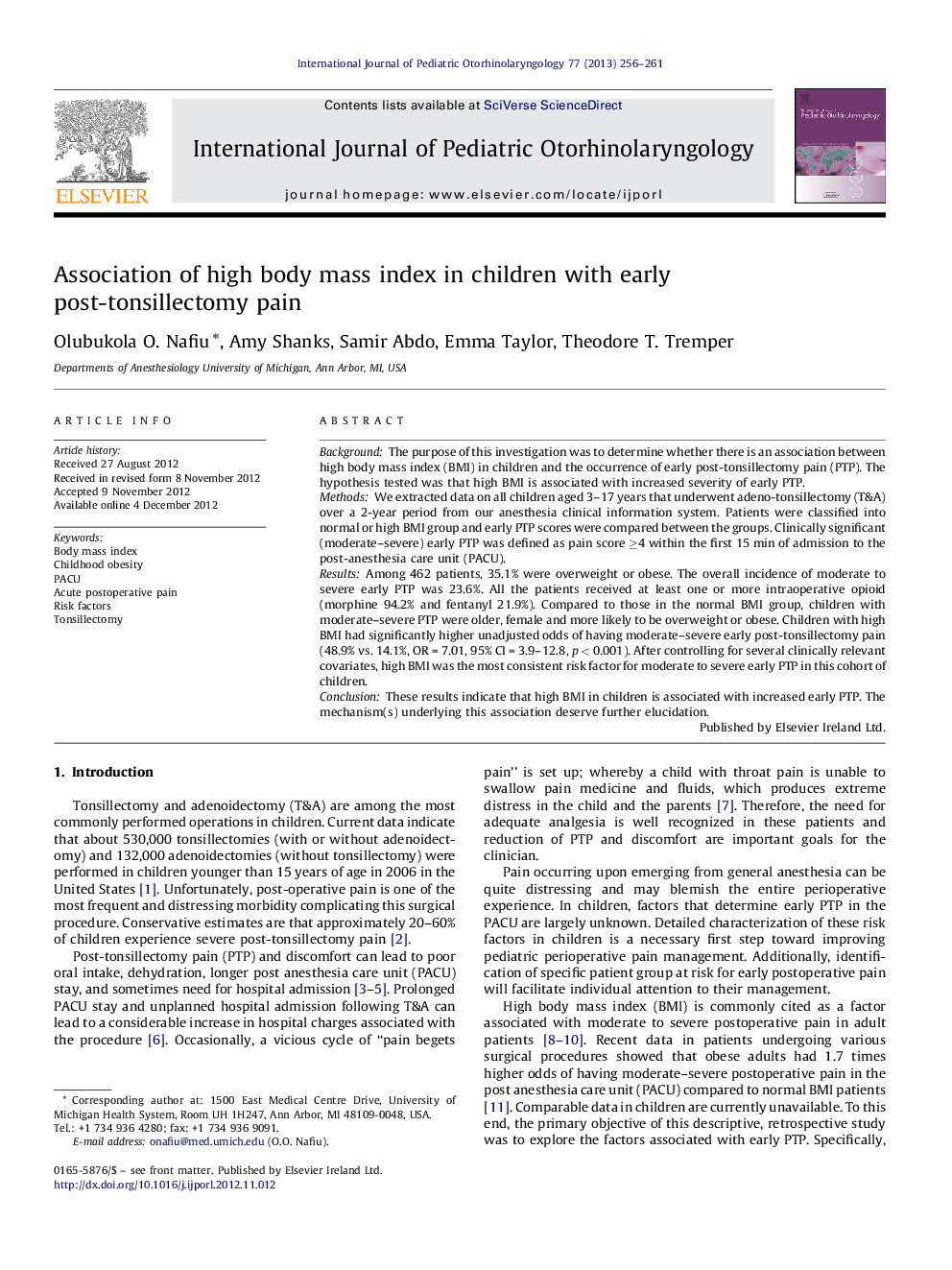| Article ID | Journal | Published Year | Pages | File Type |
|---|---|---|---|---|
| 4113197 | International Journal of Pediatric Otorhinolaryngology | 2013 | 6 Pages |
BackgroundThe purpose of this investigation was to determine whether there is an association between high body mass index (BMI) in children and the occurrence of early post-tonsillectomy pain (PTP). The hypothesis tested was that high BMI is associated with increased severity of early PTP.MethodsWe extracted data on all children aged 3–17 years that underwent adeno-tonsillectomy (T&A) over a 2-year period from our anesthesia clinical information system. Patients were classified into normal or high BMI group and early PTP scores were compared between the groups. Clinically significant (moderate–severe) early PTP was defined as pain score ≥4 within the first 15 min of admission to the post-anesthesia care unit (PACU).ResultsAmong 462 patients, 35.1% were overweight or obese. The overall incidence of moderate to severe early PTP was 23.6%. All the patients received at least one or more intraoperative opioid (morphine 94.2% and fentanyl 21.9%). Compared to those in the normal BMI group, children with moderate–severe PTP were older, female and more likely to be overweight or obese. Children with high BMI had significantly higher unadjusted odds of having moderate–severe early post-tonsillectomy pain (48.9% vs. 14.1%, OR = 7.01, 95% CI = 3.9–12.8, p < 0.001). After controlling for several clinically relevant covariates, high BMI was the most consistent risk factor for moderate to severe early PTP in this cohort of children.ConclusionThese results indicate that high BMI in children is associated with increased early PTP. The mechanism(s) underlying this association deserve further elucidation.
